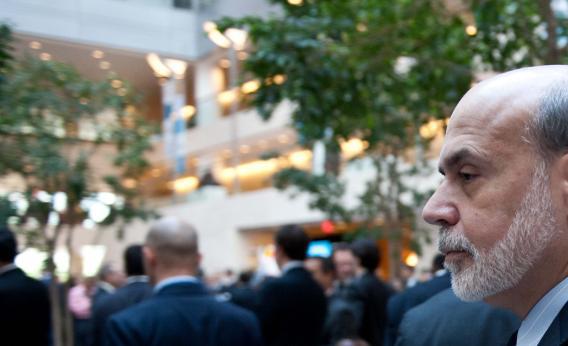A lot of folks have remarked on the amazing outpouring of hatred for Ben Bernanke’s allegedly inflationary monetary policies from the hedge fund set at the recent Sohn Conference, but I don’t think anyone’s really nailed it. Here’s the thing about rich hedge fund guys. They’re people. And like other people you may have met, they like money and don’t like paying taxes. Where rich people are different is that they have a lot of money, so it’s really tempting to say “hey lets take that money and give it to people who need the money more.”
Rich people who don’t like paying taxes don’t like the idea of macroeconomic stabilization policy. That’s because it’d convenient for them if the market economy could be not just a practical tool for allocating goods, but an moral framework imbued with deep ethical significance.
And that, in turn, is an idea that sits oddly with the concept that actually you have a bunch of bureaucrats in the Federal Reserve System making the economy plug along. So rich guys indulge fantasies of shifting back to a gold standard or something else that would restore divine right to the monetary system. But beyond that, the central banker they like best is the central banker who’s most obscure. Conventional monetary policy was something economists and bond traders paid attention to, but nobody else. Alan Greenspan raising or cutting rates by 25 basis points wasn’t a big spectacle. Since the easing (or tightening) was based on interest-rate targeting rather than quantitative monetary creation, you didn’t get articles about “printing money”. It was all just there in the background.
Ben Bernanke is as if the Wizard of Oz stepped forward from behind the curtain and turned out to be a really powerful wizard. The whole market economy turns out to be an elaborately orchestrated affair, with deep involvement by government central planners who weigh a variety of situations before determining outcomes. In that kind of world, there may still be reasons to eschew certain kinds of tax hikes. But they’re practical, pragmatic reasons. They’re not moral reasons, in which taxes violate the natural hierarchy of the market because there clearly is no such hierarchy.
